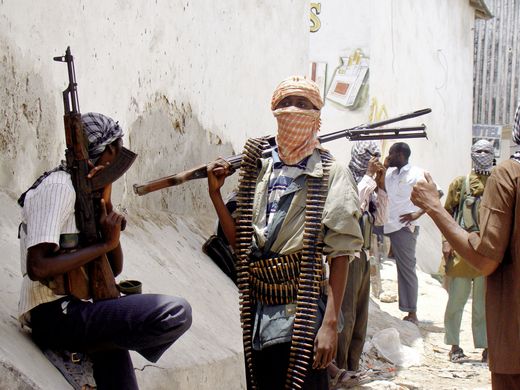reachfar.org – Nigeria, Africa’s most populous country and largest economy, has been grappling with a severe security challenge posed by the Islamist militant group Boko Haram for over a decade. The group, whose name roughly translates to “Western education is forbidden,” has waged a brutal campaign of terror, aiming to establish an Islamic state in the northeastern part of Nigeria. This conflict has led to the deaths of tens of thousands of people, the displacement of millions, and has had a profound impact on the social, economic, and political fabric of Nigeria.
The Rise of Boko Haram
Boko Haram emerged in the early 2000s under the leadership of Mohammed Yusuf, preaching a radical interpretation of Islam that rejects Western education and influences. Initially, the group focused on establishing an Islamic state in Nigeria through da’wah (Islamic preaching) and social services. However, after a violent confrontation with security forces in 2009 that led to the death of Yusuf, the group transformed into a militant organization, engaging in bombings, assassinations, and kidnappings.
The Threat of Terrorism
Boko Haram’s tactics have evolved over the years, from targeted assassinations and bombings to large-scale attacks on military bases and civilian populations. The group has also expanded its reach, carrying out attacks in neighboring countries such as Chad, Niger, and Cameroon, leading to a regional security crisis.
One of the most notorious acts of Boko Haram was the kidnapping of 276 schoolgirls from the town of Chibok, Nigeria, in April 2014. This incident brought international attention to the group’s activities and highlighted the threat it poses to regional and global security.
Impact on Nigeria
The conflict with Boko Haram has had a devastating impact on Nigeria. The northeastern part of the country, particularly the states of Borno, Yobe, and Adamawa, has been the epicenter of the violence, with thousands of people killed and millions displaced. The insurgency has also led to a humanitarian crisis, with widespread food insecurity, malnutrition, and limited access to healthcare and education.
Economically, the conflict has disrupted agricultural production, trade, and investment in the northeast, contributing to poverty and unemployment. The security situation has also deterred foreign investment and tourism, further impacting Nigeria’s economy.
Government Response and International Support
The Nigerian government has responded to the Boko Haram threat with military operations aimed at degrading the group’s capabilities. In recent years, there have been significant successes, with the military reclaiming territory previously held by Boko Haram and reducing the group’s operational capacity.
International partners, including the United States, the United Kingdom, and France, have provided support to Nigeria in its fight against Boko Haram. This support includes military training, intelligence sharing, and the deployment of troops as part of a multinational joint task force.
Challenges and the Way Forward
Despite the progress made, Boko Haram remains a significant threat. The group has adapted to military pressure by adopting guerrilla tactics and splintering into factions, some of which have pledged allegiance to the Islamic State.
Addressing the Boko Haram insurgency requires a comprehensive approach that combines military action with socio-economic development and political dialogue. Efforts to improve governance, promote social cohesion, and address the root causes of the conflict, such as poverty and unemployment, are crucial for long-term stability.
Conclusion
The threat posed by Boko Haram is a complex challenge that requires sustained effort from the Nigerian government, international partners, and the local communities affected by the conflict. While military action is necessary to combat the immediate threat, a lasting solution will depend on addressing the underlying issues that have fueled the insurgency. As Nigeria and the international community work together to counter Boko Haram, it is essential to focus on building resilient communities and fostering an environment where peace and development can thrive.
